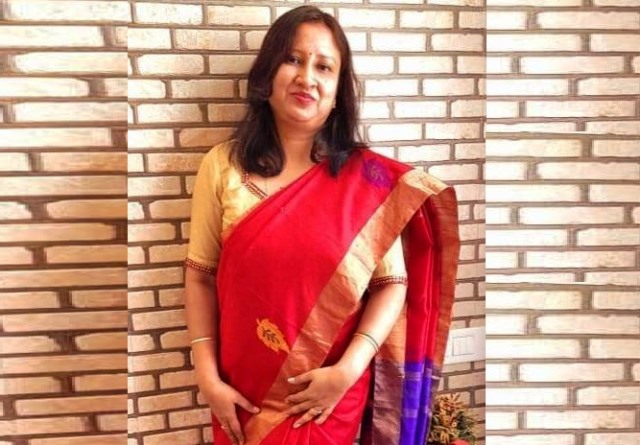When two individuals – a woman and a man – take the vow, they understandably do so in the hope of sharing common interests apart from remaining faithful to each other till death do them part. The global experience is that contrary to their original pledge to remain partners in all pursuits, as time passes by more and more couples in developed and developing countries are drifting apart leading to divorce. Mercifully, far more people get married every year than divorced. Who is not aware of the saying, which continues to gain in currency that half of all marriages in the US end in annulment. A bit of exaggeration there since only 43 per cent of first marriages will fail leading to dissolution. But when it comes to second and third marriages, dissolution rates are horrifyingly large at 60 per cent and 73 per cent, respectively.
Why only third! For someone like media Moghul Rupert Murdoch (93) age is not a bar for new romance or a new marriage. Not many were surprised when earlier this year in June, Murdoch married for the fifth time, tying the knot with Elena Zhukova (67), a Russian born retired molecular biologist. Murdoch, who finally ceded control of News Corp and Fox News at 92 in favour of his son Lachlan, was engaged immediately before his fifth marriage to conservative radio host Ann Lesley Smith but that was not solemnised. In life as in work, Murdoch is in a class of his own.
In the Forbes ‘Billionaires 2024’ list, Rupert along with his family has a net worth of $19.5 billion making him the hundredth richest in the world. The power and authority that comes with the ownership of the world’s most influential media group – The Times, The Sunday Times and The Sun, all in the UK and Wall Street Journal and Fox News – has allowed Rupert to indulge in all the quirks. For the kind of Rupert Murdoch with enormous money and social power, indulgence in peccadilloes leading to marriage break-ups is not uncommon. But their behavioural pattern has no relevance for others.
Here we are to discuss giving the example of the celebrity couple Bill and Melinda Gates, who after 27 years of marriage called it a day in May 2021, how parting of ways after a long union could prepare ideal condition for the estranged partners to make their own weather. What must be said at the outset is that Melinda Gates who has nicely transitioned into Melinda French Gates following the divorce has all through been a substantial person – a bachelor degree in computer science from Duke University topped up by an MBA – being initiated early in public service when at a Catholic school in Dallas. The spirit of service that the Catholic nuns instilled in Melinda became stronger as she went through different phases of life being a professional, wife, mother of three children, co-chairing Bill & Melinda Gates Foundation (BMGF) and finally her own investment and charitable firm Pivotal Ventures.
Both Bill and Melinda have all through believed dating back to their pre-marriage days that they have too much wealth, which must be given away among carefully chosen targeted groups in poor countries. She like Bill being a voracious reader, Melinda must have been aware of the enormous work that Professors Amartya Sen and Jean Dreze have done backed by extensive field studies that investment in women by way of education, health and pregnancy planning is an effective way to raise whole communities out of poverty. This we have seen happening in Kerala and also in Bangladesh, thanks to relentless efforts by Grameen Bank founder Muhammad Yunus (disenfranchised since by prime minister Sheikh Hasina to settle political score) to encourage women to borrow for productive purposes.
A long article on Melinda that Time has published in its July 15 issue gives credit to her for BMGF’s growing engagement with gender equity and women’s health. These besides, the foundation’s other major involvement includes climate, education, water and agriculture. While she was cochair at the foundation, Melinda made it an inviolable practice that anyone making a presentation for any new programme to be approved must convince that it would “provide dignity, equity, and access to tools and funding for all the people they were working with.”
ALSO READ: Why India’s Richest Won’t Give Their Money Away
Sensible people will never say much about reasons for marriage dissolutions. But in this particular case, Bill’s affair with a Microsoft employee, which became a subject of internal investigation and his meetings with serial sex trafficker and paedophile Jeffrey Epstein must have left Melinda devastated. She told Belinda Luscombe of Time: “Getting a divorce is a horrible thing. It’s just painful. It’s awful when you realize you need one.” She thereafter wanted “horrible thing” to be toned down to “hard thing.”
What is remarkable is the way Melinda addressed the three crucial issues of “me, the kids and the foundation” and ensure that these “pieces remain intact” while negotiating the heart-wrenching subject of becoming single. Her divorce and then after three years her leaving the foundation are not to end her involvement in philanthropy activities with unwavering focus on women empowerment in all areas from politics to business to media and technology. For most people it would be a big challenge to transition from being cochair of the foundation with an endowment of $75.2 billion and which has given away around $76 billion in the past 24 years to running her own Pivotal Ventures bringing to play the comparatively modest sum of $23.8 billion, including her own $11.3 billion and the $12.5 billion that she received from the foundation for philanthropic work, as divorce settlement.
Melinda claims to be not bothered by what looks like inevitable downsizing of work for her in the wake of funds to play with shrinking. Unwaveringly she tells Time: “I don’t see it honestly as a downsizing. I was just ready to be able to have full decision-making control about where all the funds go.” The causes that she wants to support becomes clear the way she is distributing the first billion since dropping the Gates surname.
Two subjects that more recently got her goat are women’s constitutional right to abortion, which the US Supreme Court overturned by reversing its five-decade old decision (Roe versus Wade) and need for federal policy on family medical leave. She is very vocal about using her resources “in a huge way” to promote the two causes. Interestingly she admits she is influenced in upholding the causes by her daughters. On abortion right abrogation, Melinda has this to say: “To see that my granddaughters will have fewer rights than I do? That doesn’t make any sense.” Abortion and health are conjoined in many cases.
Finally, will there be an occasion at any time in future of Bill and Melinda collaborating in philanthropic work? The answer to this is anybody’s guess. But Gates has this to say in a written statement to Time: “I’m grateful to Melinda for all her contributions to the Gates Foundation, where she was instrumental in shaping our strategies and initiatives. I’m certain she will have a huge impact through her future philanthropic work. I’m impressed with many of the grants she’s already announced for women’s health and economic empowerment, and hope we have the opportunity to collaborate again in the future.”
For more details visit us: https://lokmarg.com/


